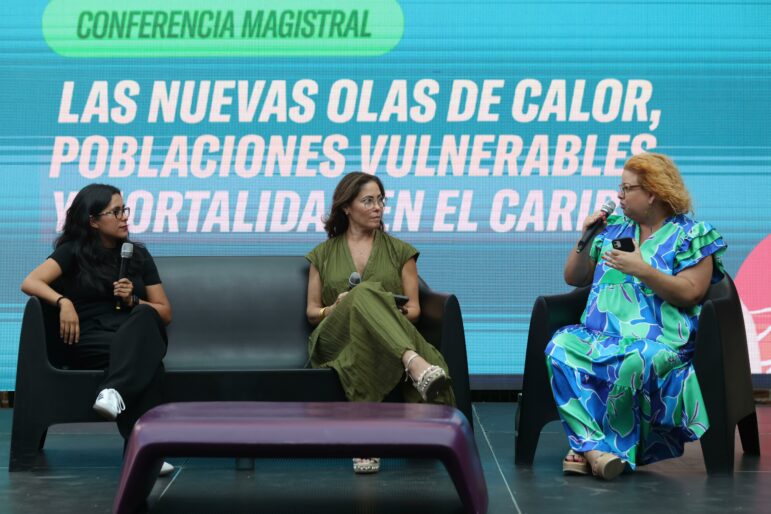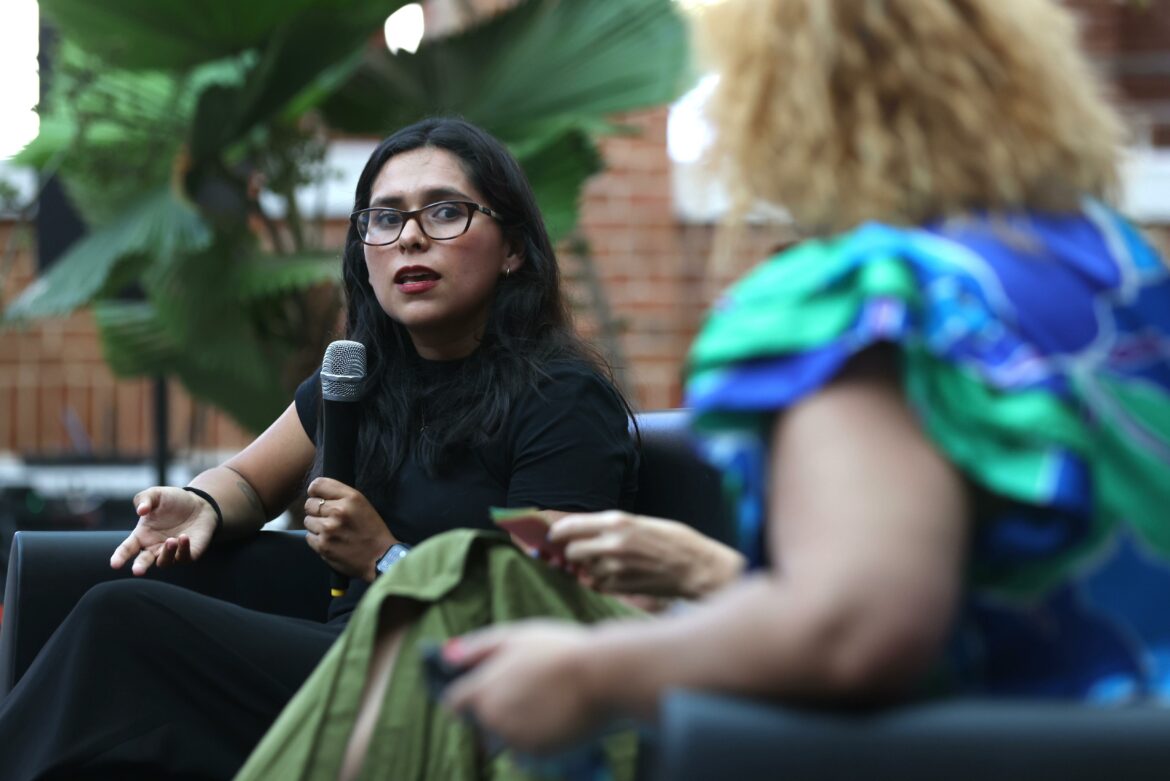If governments and citizens, especially older adults, continue to ignore scientific warnings about the indicators of the existence of climate change, a bleak outlook is what awaits all countries.
This was confirmed by the data presented by Luciana Blanco Villafuerte, Lancet Countdown Latin America researcher, at the Center for Investigative Journalism’s (CPI, in Spanish) Caribe Fest 2024 Keynote Conference held on April 12-13 at the Museum of Contemporary Art in Santurce.
“The notion that the entire population is at risk is not present,” said Blanco Villafuerte, who characterized the future of the planet as dangerous due to the inactions or lack of government action regarding the issue.
The sum of climate change and the El Niño atmospheric phenomenon, which currently affects ocean temperatures, will cause significant global changes, she warned.
“If we do nothing, if we continue polluting, temperature levels will continue to increase with the rise of the greenhouse effect,” she added.
This would imply a 370% increase in annual heat-related deaths; 50% increase in lost work hours (especially in the agriculture sector); 525 million more people experiencing moderate to severe food insecurity; and a 37% increase in the potential for transmission of dengue and other diseases carried by mosquitoes.
Blanco Villafuerte urged action now because, before the report on the region that the entity will present in May, she was able to confirm that “as of 2018, the Caribbean was the region that had the most days of exposure to heat that are dangerous to health with 101 days [per year] that put our health at risk. Then comes Africa, with 83 days, and then Central America.” In the Dominican Republic, there has been a 256% increase in deaths attributable to heat, according to data the organization has collected since 2005.
These are just some of Lancet Countdown‘s findings that the researcher highlighted in the Keynote Conference, which later became a conversation moderated by Omaya Sosa and Carla Minet, co-founder and executive director of the CPI, respectively.

Photo by Brandon Cruz González | Center de Periodismo Investigativo
In turn, the ongoing increase of CO2 (carbon dioxide) levels released into the atmosphere will continue to cause high temperatures, changes in seasons, rise in sea level, extreme natural events, droughts, floods, and forest fires not produced by humans, Blanco Villafuerte said.
One of the biggest concerns is the risk of food shortages, which would lead to malnutrition around the planet because more and more hours of work are lost in the agricultural sector due to high temperatures.
“We cannot produce the food we need, especially in countries that depend on agriculture. “There are currently 127 million people suffering from some type of food insecurity,” she warned.
“The productivity level of staple foods like corn, wheat, and soybeans has dropped because there are fewer months to grow those foods. Also, their nutritional level [nutrients] isn’t like before, it’s lower,” the scientist warned.
Many Older Adults Don’t Believe that Climate Change Will Affect Their Health
“Younger people are more aware, but adults over the age of 50 aren’t convinced that this affects their health. That’s why the power of journalists to pass this information to [older] adults is extremely important,” said Blanco Villafuerte.
She added that most older people have chronic diseases and the medicines they take sometimes affect their bodies’ perception of heat and can cause them to collapse, something that many of them are unaware of.
“They must recognize that heat stroke causes headaches, dizziness… It’s a fundamental issue. If it’s a very hot day and out of nowhere I stopped sweating, that’s a determining factor to go to the emergency room immediately because it implies a risk of death due to possible failures of different organs,” she noted.
On the other hand, given the changes from arid to humid ecosystems due to flooding or rising sea levels, “the reproduction potential of the mosquito [that transmits dengue or malaria, for example] would increase by 35%. Now there are many [mosquitoes] in places where there were none. In areas that are now humid, and weren’t before,” she said.
The researcher said she’s concerned because in conferences she has given to health professionals in Latin America she noticed the lack of knowledge about these health effects. “Doctors are not prepared; in many cases they don’t know how to treat dengue. “There are areas where there were no mosquitoes or dengue before.”
“It is being observed that there are more deaths globally. In Europe, even though there are countries with a high socioeconomic level, air conditioning is not used regularly, and they have many older adults and more deaths attributable to heat,” she said.
Governments Lack Data and Funds to Tackle the Climate Crisis
The scientist said that part of the work carried out by entities such as Lancet Countdown is to collect and analyze data on the impacts of the climate crisis that contribute to taking individual and public policy actions.
Blanco Villafuerte said “there are different problems and limitations. For the indicators, we need data provided by the country itself and unfortunately our countries are very behind in this process. There’s no budget in some countries for this. The ideal thing would be to start generating data so that we as scientists can use it to establish these indicators,” and alert the population and authorities.
The scientist believes it is imperative that citizens demand that their governments “see climate change as an issue that must be handled in a transdisciplinary way, because they work from independent sectors, they don’t include scientists, architects, engineers… They must work together. Include the indigenous communities, the citizens, who are the ones living in the cities. Investment is needed for the evaluation and mitigation of climate change.”
She added that “seeing that there are more and more young people who come out and raise their voices, although they are called ‘climate radicals’, it’s the young people who are educating themselves. People must start talking more [about the climate crisis].”



